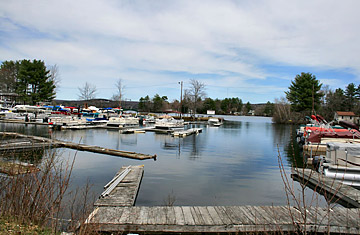
One of the world's longest place names started out a mite shorter: centuries ago local Nimpuc Indians reportedly called a 1,442-acre lake in present-day Massachusetts Chaubunagungamaugg, which historians translate to "Fishing Place at the Boundary." When European settlers moved into the area, the Nimpuc apparently adopted the phrase Chargoggagoggmanchauggagogg, which means "Englishmen at Manchaug." Later they strung it together with their original lake name, winding up with the descriptor "Englishmen at Manchaug at the Fishing Place at the Boundary," or (deep breath) Lake Chargoggagoggmanchauggagoggchaubunagungamaugg.
Over the years, Massachusettans frustrated by misspelled signs — not to mention, presumably, having to pronounce a tongue twister — have repeatedly tried to change the name. One attempt, in the 1950s, to reduce the number of g's from 15 to 13 inspired a poem that begins, "Touch not a g of our big lake!" Today the Department of the Interior lists the official name as Lake Chaubunagungamaugg. But some locals just call it Lake Webster.